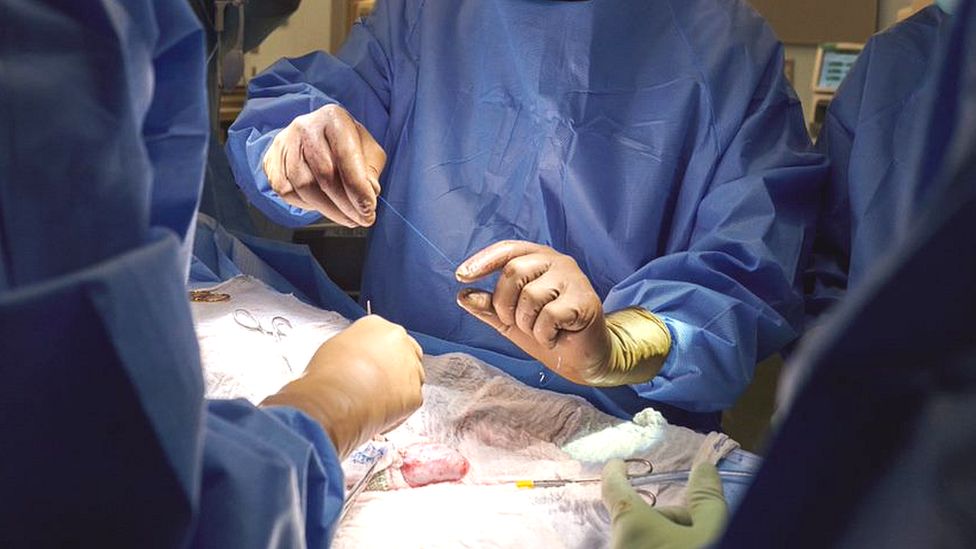U.S. Surgeons say they have successfully given a pig’s kidney to a person in a transplant, hoping to solve the donor organ shortage issue.
The recipient was brain-dead, meaning they were already on artificial life support with no prospect of recovering.
The kidney came from a pig that had been genetically modified to stop the organ being recognized by the body as “foreign” and being rejected.
During the two-hour operation at the New York University Langone Health medical centre, the surgeons connected the donor pig kidney to the blood vessels of the brain-dead recipient to see if it would function normally once plumbed in, or be rejected.
Over the next two-and-a-half days they closely monitored the kidney.
Lead investigator Dr. Robert Montgomery told the BBC’s World Tonight programme, “It functioned normally, and did not appear to be undergoing rejection.”
The surgeons transplanted a bit of the pig’s thymus gland too, along with the kidney. They think this organ might help stop the human body rejecting the kidney in the long term by mopping up any stray immune cells that might otherwise fight the pig tissue.
Similar tests have been done in non-human primates, but not people, until now.
Using pigs for transplants is not a new idea though. Pig heart valves are already widely used in humans.
And their organs are a good match for people when it comes to size.
A heart transplant recipient himself, Dr Montgomery says there is an urgent need for finding more organs for people on waiting lists.
He also acknowledge that his work is controversial but he says, “We use pigs as a source of food, we use pigs for medicinal uses – for valves, for medication. I think it’s not that different.”
The family of the recipient, who had wanted to be an organ donor, gave permission for the surgery to go ahead. Also, the FDA has approved the use of the genetically modified pig organs for this type of research use.
Dr. Montgomery believes that within a decade, other pig organs – hearts, lung and livers – could be given to humans needing transplants.




